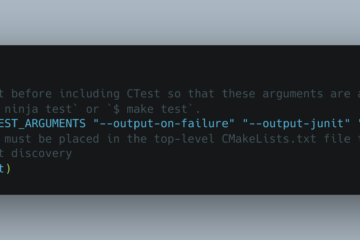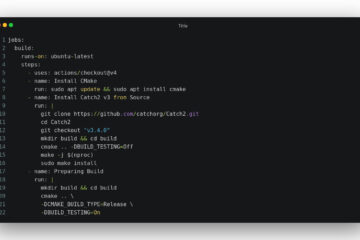Where to find the official GNU ld and linker script documentation?
This is another post in the series of stuff I wish I knew when I started studying in 2015. So, dear past me, here you go. The very short answer is that all GNU binutils documentation, which GNU ld is part of, is hosted at sourceware.org/binutils. One also finds the documentation of the linker script language (as part of GNU ld), GNU as (gas) and GNU BFD library (libbfd), including more binutils there. Read more…


